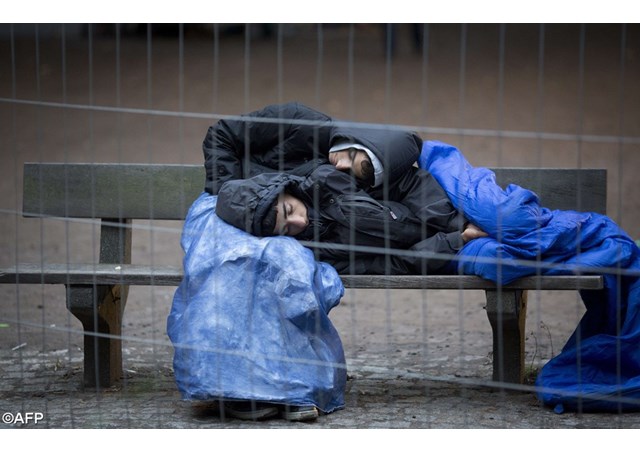
German county declares state of emergency over refugee crisis

(Vatican Radio) For the first time since World War Two a county in Germany has declared a state of emergency to deal with the influx of refugees amid warnings by critics that the nation has reached its limits and concerns over hundreds of far-right attacks against migrants fleeing war and poverty. At the same time in Hungary, presidents of several Eastern European countries discussed the refugee crisis, with the Czech Republic sending additional troops to its border with Austria.
Listen to Stefan Bos' report:
Officials in Main-Taunus county west of the German city of Frankfurt said they declared an emergency ahead of the arrival of some 1,000 refugees Monday to make it easier for authorities to cope with the influx, for example by suspending certain building regulations.
In a statement Friday, they said it was the first time since 1945 that a disaster has been called in the country.
Germany has seen almost 600,000 migrants arrive since the start of the year, including many refugees from conflicts in Syria, Iraq and Afghanistan.
However, the southern state of Bavaria, where most arrive, has urged the German government to turn refugees back at the country's border if it can't get other European Union nations to respect rules that newcomers are to be processed in the first EU country where they arrive.
Struggling authorities
Authorities struggle to accommodate refugees while Germany's Interior Minister says it recorded nearly 500 attacks - ranging from arson to racist graffiti - on refugee shelters this year.
Yet possible border closures for refugees in Germany and perhaps Austria would put more pressure on countries such as Croatia. In Croatia of refugees have arrived after neighboring Hungary erected fences along its borders with Croatia and Serbia.
Croatian President Kolinda Grabar-Kitarović visited Hungary to discuss tensions between the two countries over the refugee crisis, though she said she understood Hungary's concerns. "We must know who crosses the country's border and why and the border should be continually controlled so that no illegal border crossings disturbs order."
Hungary's President János Áder has warned that solidarity with refugees escaping war must not overshadow concerns about human trafficking and the threat from extremists in relation to the migrant crisis. "We agree that this migrant crisis is a humanitarian and criminal issue and a national security question," he told reporters.
The Hungarian president later said that that while "the humanitarian aspects are very important, especially with the coming winter ... we would be making a big political mistake if we neglect the criminal and national security aspects of this migration wave."
Visegrad group
Áder spoke in the resort town of Balatonfüred during a meeting with presidents of the so-called Visegrad Group, which also includes Poland, the Czech Republic and Slovakia, and also attended by Croatia's president.
Hungary has urged the EU and NATO military alliance to send some 1,000 troops to help thousands of Hungarian soldiers and police to secure its southern borders.
And, the Czech Republic announced it is putting 650 soldiers on alert to be ready to help hundreds of police deal with a possible influx of migrants near Austria.
Yet, the Eastern European countries have called for more international action: In one of the first steps the United Nations Security Council authorized the European Union and individual countries to seize migrant-smuggling vessels already on the high seas off Libya.
The resolution is under Chapter 7 of the U.N. Charter, which means it can be militarily enforced.
| All the contents on this site are copyrighted ©. |


